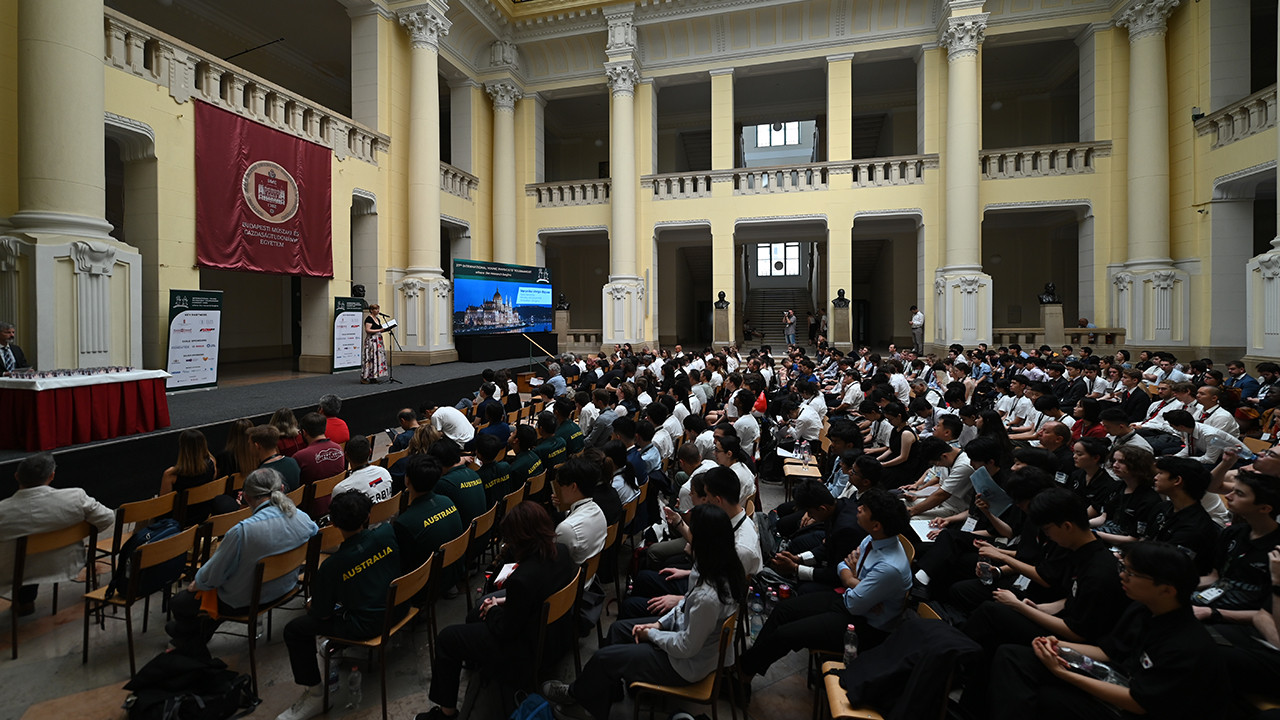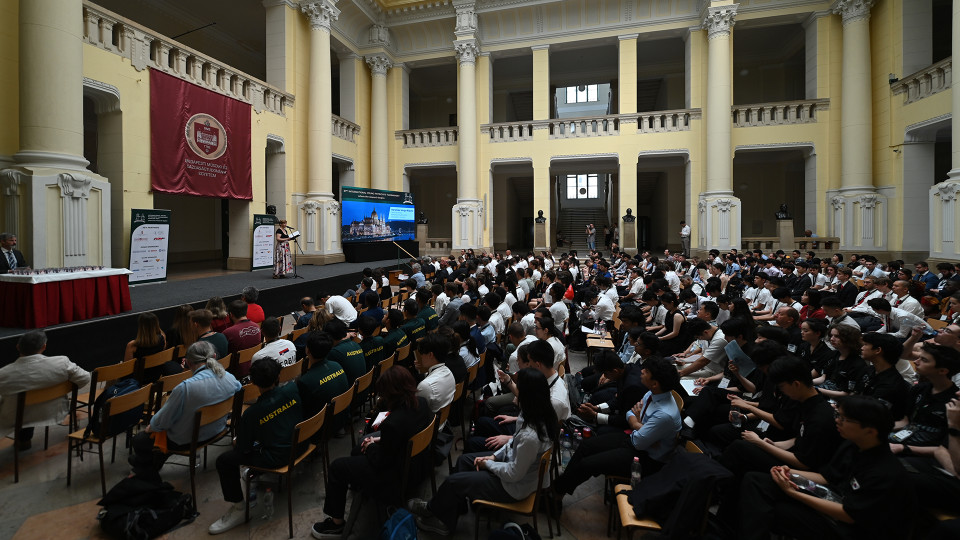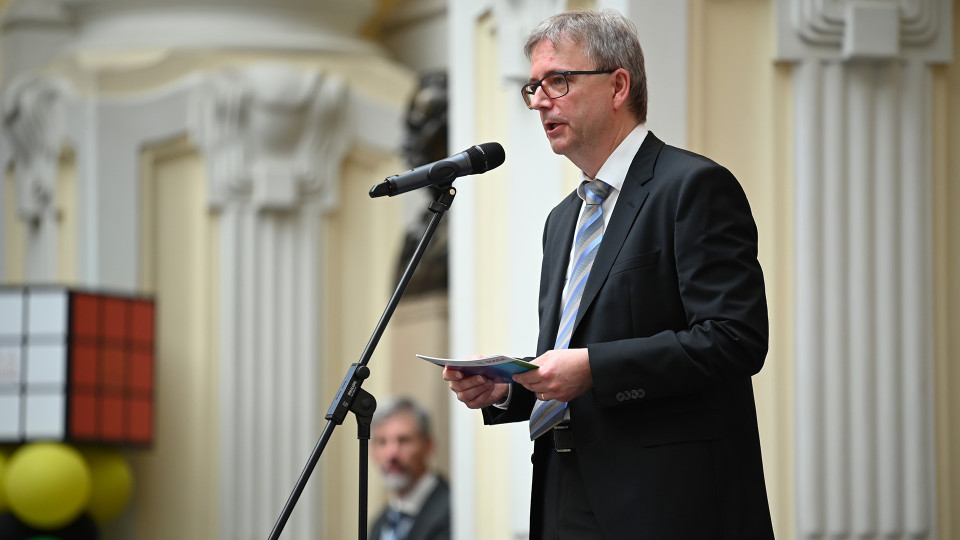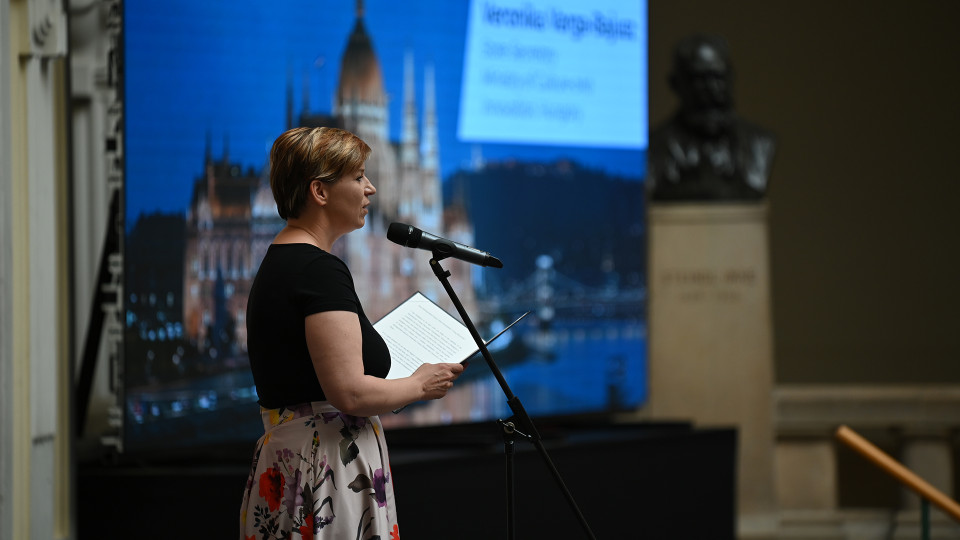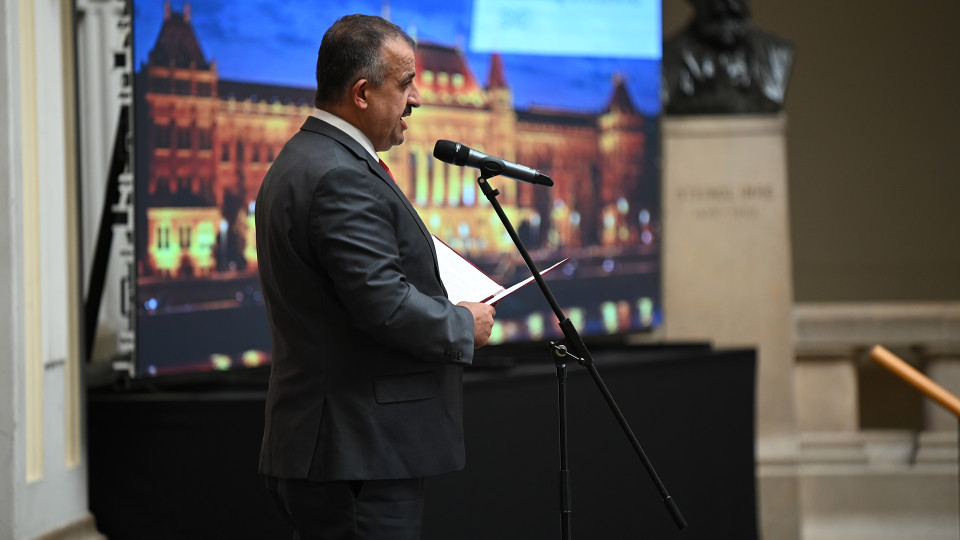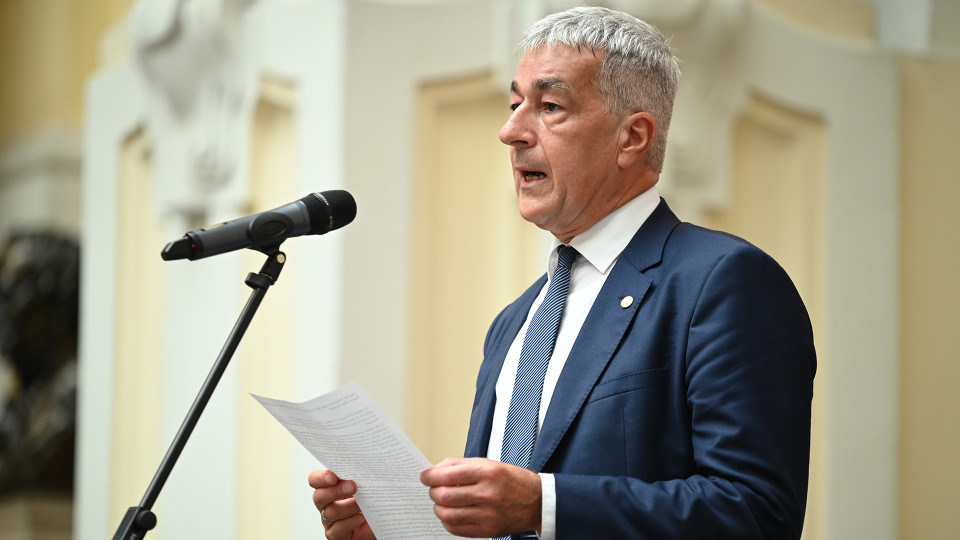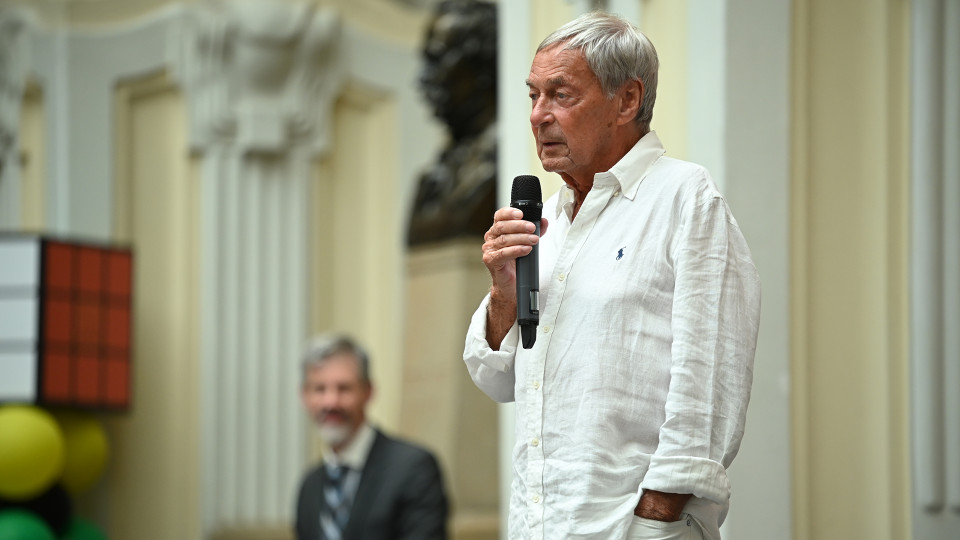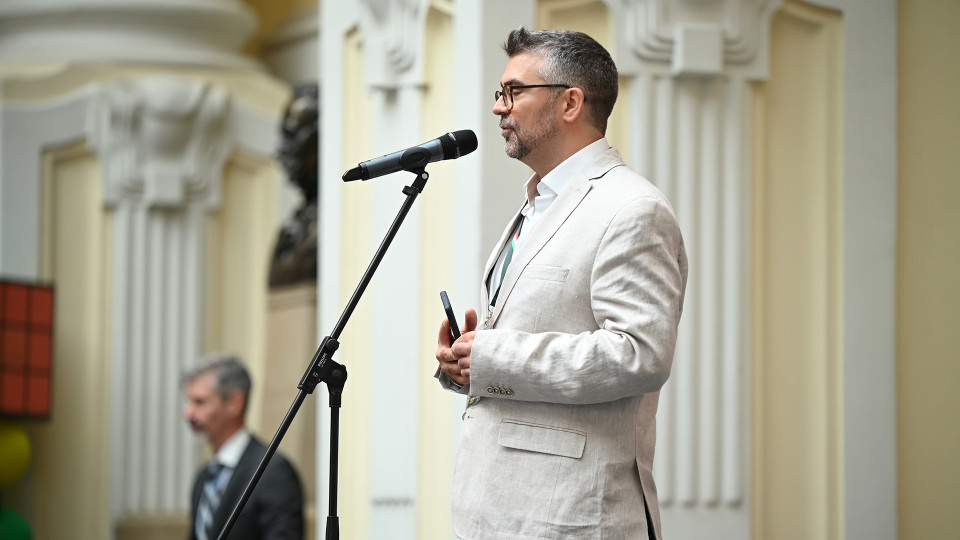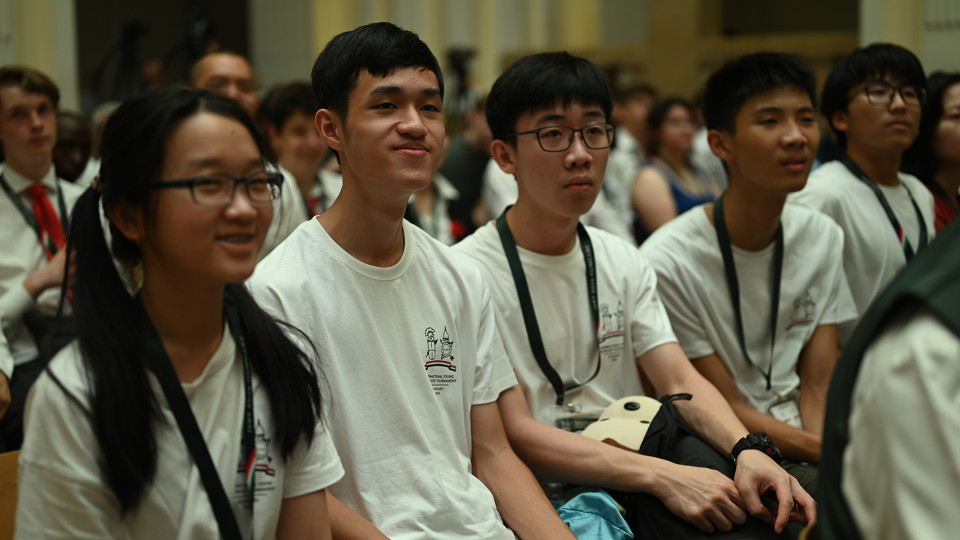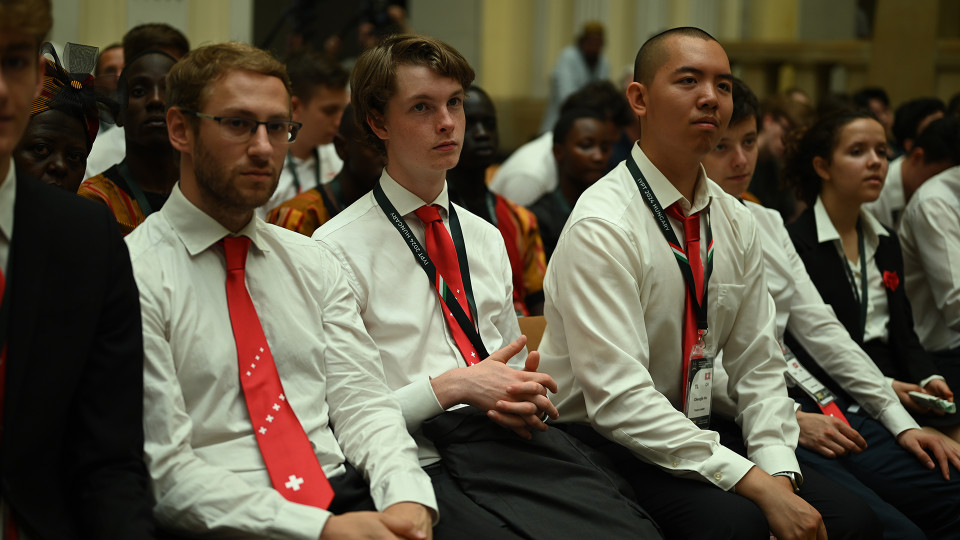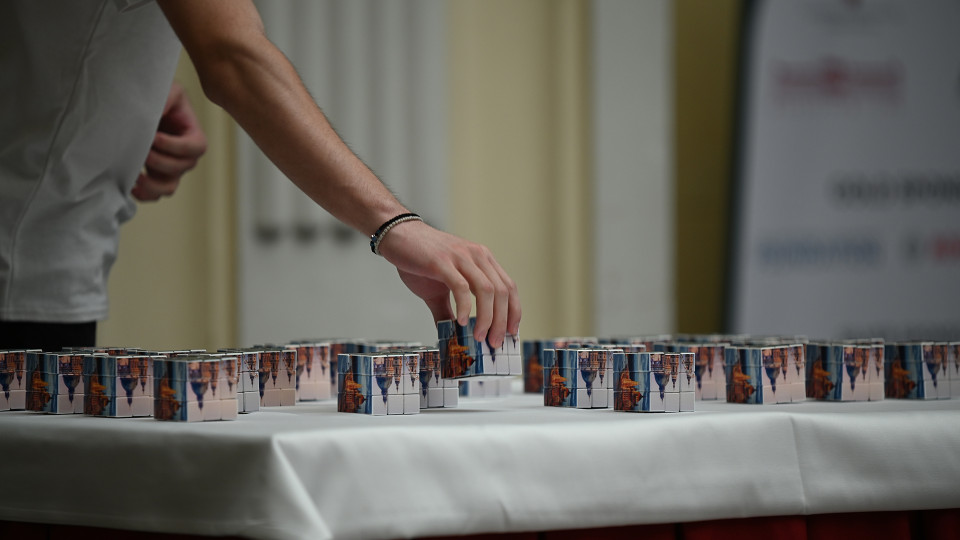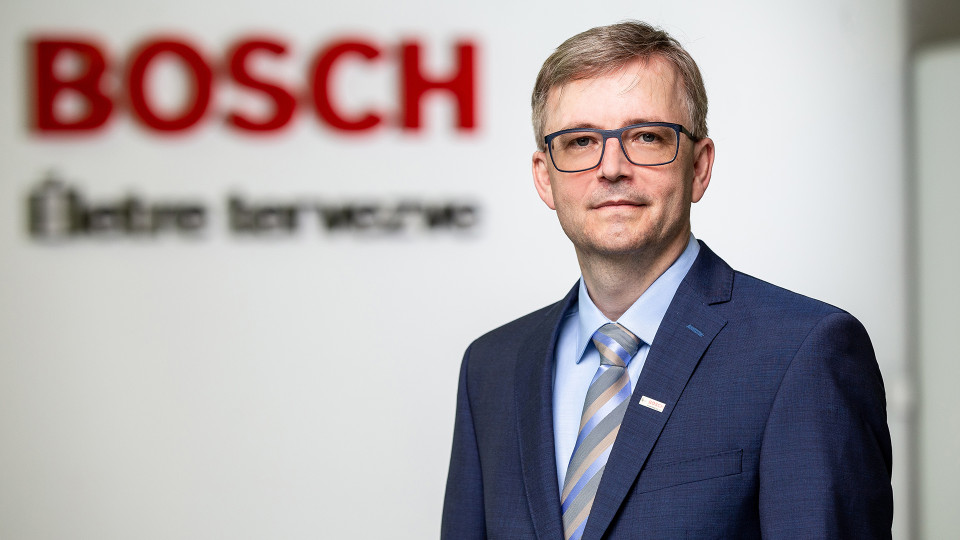From July 10th through 17th, the International Young Physicists' Tournament (IYPT), the most prestigious international team competition for high school physics researchers, will take place in Budapest. More than 350 participants from 39 countries will arrive in Hungary for the largest-ever event of its kind. Ferenc Krausz, laureate of the Nobel Prize in Physics, Széchenyi Prize-recipient physicist László Kiss and Ernő Rubik will be among the guests. This unique global competition is co-organized by the Eötvös Loránd University (ELTE) and the Budapest University of Technology and Economics (BME), with the support of the Ministry of Culture and Innovation, Bosch Hungary, Grundfos, Jane Street and many other partners.
The International Young Physicists’ Tournament 2024 (IYPT2024) will bring together young physics talents from around the world to test their knowledge and research achievements, and to showcase their creativity and communication skills in an unusual way. Competitors will be challenged to solve open-ended research problems when preparing for the tournament, such as optimizing the flight distance of a rubber band or estimating the number of objects in a box by the sound of its shaking. The English-language team competition not only inspires physics teaching and research, but also serves to build the future international scientific community.
Global competition in Budapest
At the opening ceremony on July 11, participants were welcomed by Veronika Varga-Bajusz, State Secretary of the Ministry of Culture and Innovation, Ernő Rubik, world-renowned inventor and Kossuth Prize-recipient, Charaf Hassan, Rector of BME and Imre Kacskovics, dean of the ELTE Faculty of Science, at the Budapest University of Technology and Economics.
The tournament will be hosted at ELTE's Lágymányos Campus, just like the Science Talk event on July 12, which will also be available online. The scientific program will also feature László Kiss, Széchenyi Prize-recipient physicist and academic, as well as Ferenc Krausz, a 2023 laureate of the Nobel Prize in Physics. The former will present his lecture ‘Where is everybody? The Fermi paradox and the hunt for extraterrestrial life’, and the latter on ‘SUB-ATOMIC MOTIONS: from capturing electrons to protecting human health’.
The streamed final (join via this link) will take place on July 16th at the Bosch Budapest Innovation Campus, where the results will also be announced. The event will feature a speak by Balázs Hankó, Minister of Culture and Innovation.
“Every year, the Hungarian team is prepared by the staff and students of the ELTE Institute of Physics and Astronomy, and the members of Hungarian team won gold medals in 2017, silver medals in 2021, 2022 and 2023, and bronze medals in 2018 and 2019,” said Mihály Hömöstrei, master teacher at ELTE Faculty of Science, Head of the Local Organizing Committee of IYPT2024.
“Young people are the innovators of the future. Young talents are in great demand, as among them are the scientists and professionals who will drive the world forward with their innovations. At Bosch, we believe in young people, and we have a number of programs to support the secondary school age group. We are happy to support the international physics competition, which can be an important step in the professional development of the competitors,” said András Kemler, head of real estate management of the Bosch Group in Hungary and the Adriatic region.
Situation awareness, argumentation, teamwork – it's not just theoretical knowledge that counts
What makes the IYPT stand out from other student science competitions is that instead of competing on paper, young people present and discuss specific research problems in the roles of proponent, opponent and judge. In addition to understanding the issues raised, the competition also emphasizes quick thinking and situational awareness, persuasive argumentation, English language skills and teamwork.
To qualify for the 5-member national team, a candidate must first perform well in the national round and then qualify through an intensive preparation period involving several months of experimental and theoretical research, communication training and training camps.
A year of preparation for the competition
The team members have almost a year to work on the open-ended research problems they have been given. The problems they are presented with involve complex physical systems and have no published solutions. The contestants' task is to understand the phenomena as precisely as possible, to search for research methods, to formulate and test hypotheses, and finally to come up with approximate formulas and theoretical interpretations with the widest possible validity. All this is defended by the students in a scientific debate.
Among the 17 challenging and analytical problems to be tackled this year are: estimating the number of objects placed in a box from the sound effect of shaking the box; investigating the optical properties of a water droplet placed on a glass surface; optimizing the flight distance of a stretched and released rubber band; explaining the sound effects created by bending a large, thin and flexible plate; investigating magnetic gears; or studying the flow in a water pump made of drinking straw.
More information and the detailed program are available in English on the Hungarian and international websites of the competition.
Zita Hella Varga
Phone: +36 70 667-6374
Bosch has been present in Hungary since 1898 with its products. After its re-establishment as a regional trading company in 1991, Bosch has grown into one of Hungary’s largest foreign industrial employers with currently eight subsidiaries. In fiscal 2023 it had total net sales of 2.207 billion forints and consolidated sales to third parties on the Hungarian market of 343 billion forints. The Bosch Group in Hungary employs more than 18,300 associates (as of December 31, 2023). In addition to its manufacturing, commercial and development business, Bosch has a network of sales and service operations that covers the entire country.
The Bosch Group is a leading global supplier of technology and services. It employs roughly 429,000 associates worldwide (as of December 31, 2023). The company generated sales of 91.6 billion euros in 2023. Its operations are divided into four business sectors: Mobility, Industrial Technology, Consumer Goods, and Energy and Building Technology. With its business activities, the company aims to use technology to help shape universal trends such as automation, electrification, digitalization, connectivity, and an orientation to sustainability. In this context, Bosch’s broad diversification across regions and industries strengthens its innovativeness and robustness. Bosch uses its proven expertise in sensor technology, software, and services to offer customers cross-domain solutions from a single source. It also applies its expertise in connectivity and artificial intelligence in order to develop and manufacture user-friendly, sustainable products. With technology that is “Invented for life,” Bosch wants to help improve quality of life and conserve natural resources. The Bosch Group comprises Robert Bosch GmbH and its roughly 470 subsidiary and regional companies in over 60 countries. Including sales and service partners, Bosch’s global manufacturing, engineering, and sales network covers nearly every country in the world. Bosch’s innovative strength is key to the company’s further development. At 136 locations across the globe, Bosch employs some 90,000 associates in research and development, of which nearly 48,000 are software engineers.
The company was set up in Stuttgart in 1886 by Robert Bosch (1861–1942) as “Workshop for Precision Mechanics and Electrical Engineering.” The special ownership structure of Robert Bosch GmbH guarantees the entrepreneurial freedom of the Bosch Group, making it possible for the company to plan over the long term and to undertake significant upfront investments in the safeguarding of its future. Ninety-four percent of the share capital of Robert Bosch GmbH is held by Robert Bosch Stiftung GmbH, a charitable foundation. The remaining shares are held by Robert Bosch GmbH and by a corporation owned by the Bosch family. The majority of voting rights are held by Robert Bosch Industrietreuhand KG. It is entrusted with the task of safeguarding the company’s long-term existence and in particular its financial independence – in line with the mission handed down in the will of the company’s founder, Robert Bosch.
Additional information is available online at www.bosch.hu, iot.boschblog.hu, www.bosch.com, www.iot.bosch.com, www.bosch-press.com, www.twitter.com/BoschPresse

